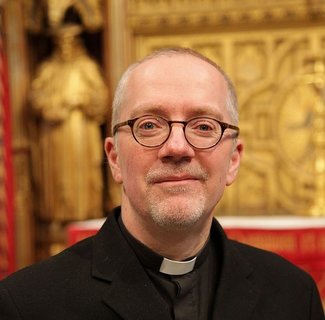Croydon’s Opportunity and Fairness Commission has just published its final report. Its 58 recommendations include the call for a ‘Fairbnb’, modelled on Airbnb but providing lodgings for homeless people, business rate reductions for companies that pay the London Living Wage and pursue employment practices which are disability friendly, and a new drive to tackle social isolation.
The context for our work was and is brutal cuts to local government budgets, government welfare changes forcing people out of central London, and increasingly unaffordable London house prices: a formidable cocktail of change that made our task seem daunting. To compound this many of the low hanging fruit like asking the council to pay the London Living Wage were not available to us because Croydon Council is already doing it.
Croydon town centre is in the midst of a renaissance. Its ugly post war architecture and tired looking shopping centre are undergoing major redevelopment. It is attracting many new high tech businesses and a new generation of social entrepreneurs and voluntary sector organisations, and its arts and cultural offer is beginning to blossom. Part of our work as a Commission was to help this redevelopment to be more than just a commercial opportunity; it also opens the door to a new and more positive story about Croydon as a town and as a borough.
Croydon is a borough of contrasts – the north of the borough shares the same social composition, problems and opportunities as an inner urban London borough, though without the corresponding funding settlement. The south, though now changing, is still white, affluent, and traditionally suburban. These differences are reflected in the political make-up of the Council, and made it a particular challenge to tell a story of Croydon which would be recognisable and attractive to a broad swathe of its people.
So how did we go about our work?
Matthew Taylor gave the first talk to the nascent Commission. We heeded his advice to relentlessly focus on what can be achieved locally and eschew a wish list of things ‘other people’ could do.
Unlike most other Commissions, we recruited exclusively commissioners who lived or worked in the borough with a broad set of life experiences, set up a separate Youth Commission to hear the views of young people, went on local walkabouts, conducted street surveys, held town hall style meetings, and video clipped local residents sounding off about the area. We tried to get as much local texture as possible. In the end we reached over 3,000 people.
Our initial brief was to be a Fairness and Opportunity Commission, and we found that double title reflected in the perceptions and ambitions of Croydon’s people. Our early research indicated that people were concerned about fairness of opportunity much more than fairness of (financial) outcome. The fact that there is 15 years’ difference in life expectancy between neighbouring wards is a huge concern; the equally great disparity of income did not concern people equally.
We unearthed the assets, networks and motivations of the borough and looked at new ways to collaborate and innovate. We sought out as much best practice as possible within the borough and tried to amplify it, like My Outspace, a social enterprise which offers workspaces alongside flexible childcare, and Goodgym, which gets volunteers to keep fit and help isolated people by running to their location before providing home support.
What were our conclusions?
The arguments we found most convincing were those centred on bottom up change, where organisations were pressured to act by positive social action. By its nature citizen activism does not lend itself to top down recommendations but our ideas were oriented to creating the conditions in which this kind of activism can flourish. They include:
- A new approach to devolving power to district centres, working to align the interests of residents and local businesses
- Volunteering among council employees and local businesses oriented to agreed social priorities and facilitated by an outside organisation
- A major drive to improve mental wellbeing and improve support for special education needs children by bringing together school heads and nudging schools to spend their £19.9 million Pupil Premium wisely on best practice in this area, through top-up funds, funds for evaluation, guidance and shared learning
- A new Good Agent and Landlord Charter to spread best practice from the social rented sector into the private rented sector, like early signposting to debt advice and money wise training for those who fall into arrears, with reductions on the cost of a landlord licence for those who sign up
- More outreach services to help tackle social isolation and support those with long term illnesses and disabilities in GP centres and other community venues
I found it immensely rewarding to see the passion and commitment of so many local people to their neighbourhood and firmly believe that the Croydon Opportunity and Fairness Commission offers a template for bringing local people together to tackle shared challenges in their area.
Rt Revd Jonathan Clark
Bishop of Croydon and Chair of the Croydon Opportunity and Fairness Commission

Join the discussion
Comments
Please login to post a comment or reply
Don't have an account? Click here to register.
I am encouraged by your inclusion of special needs and particularly interested in the fact that you could bring together special school heads and use the Pupil Premium funding - speaking as Trustee of a very small charity not a million miles away in Greenwich, namely www.liquidvibrations.org.uk. If you have any further advice (as a Fellow) I would be glad to receive it.